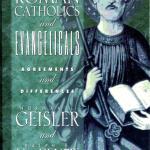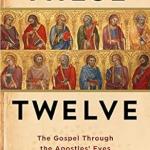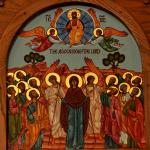In this sense, union activity undoubtedly enters the field of politics, understood as prudent concern for the common good. However, the role of unions is not to ‘play politics’ in the sense that the expression is commonly understood today. Unions do not have the character of political parties struggling for power; they should not be subjected to the decision of political parties or have too close links with them. In fact, in such a situation they easily lose contact with their specific role, which is to secure the just rights of workers within the framework of the common good of the whole of society; instead they become an instrument used for other purposes.
Written in 1981, there seems to be considerable misunderstanding over what “commonly understood today” means. Playing politics is a reference to communists within unions, especially those of Eastern Europe. The common politics were to treat the communist party’s interests and the interests of unions as one. The unions derived their legitimacy from association with the communist party. For those still in doubt on the matter, there are 18 references to variations of proletariat above the excerpt in Laborem exercens. This passage wasn’t alluding to something; it was speaking to a concrete reality.
This passage is being improperly cited. In Wisconsin, the teachers and many other public employee unions are fighting to preserve their rights to collectively bargain and have a union. Other issues affecting them are pension payments and health care premiums. Despite conceding these issue as an olive branch in negotiations, these are most certainly under the legitimate interests and rights of the unions. These are not part of a secondary agenda that are beside their interests as a legitimate association. They are fundamental to the cause of establishing the association. To offer this quote as a corrective or caution as it relates to the situation in Wisconsin is to fundamentally misunderstand the passage.
One could certainly take a neutral position on labor negotiations between the governor and unions, and absent an egregious breach one probably should be neutral and allow each side to come to a mutually satisfying and amicable solution. As to the specific situation in Wisconsin, the unions have publicly proclaimed their willingness to cede monetary issues. On that point, there are no conflicting sides, and one would be perfectly reasonable in siding with the governor and the unions. However, the abolishment of rights to negotiate over health and retirement benefits is not reconcilable to neutrality. Those rights must be defended because they are a part of the intrinsic character of work itself. The same encyclical calls this a principal right. We are compelled to read the church tradition in continuity, and we are especially compelled to do so within the same document.
Finally, I am compelled to speak to other aspects of this bill. Because of the infringement on worker rights, Wausau and other communities are looking at the loss of federal subsidies for their bus services. In smaller communities like Wausau, buses are one of the only ways the disabled and mobility impaired participate in normal life. With the loss of federal subsidies, these services are threatened to end. Changes in Badger Care and Senior Care are anticipated to strip tens of thousands of people from receiving health care. When Governor Walker’s formal budget is proposed, it is anticipated that students at the University of Wisconsin will see a 20% tuition increase. I am extremely troubled by the lack of commentary this has received from Wisconsin’s bishops. Allegedly we are a church of the poor. In other contexts, we are constantly reminded that we need to be a voice for the most vulnerable. Where is our voice here? Are we as a church afraid of offending the political sensibilities of people by recognizing the needs of the impoverished and vulnerable in this state? On other issues, the bishops have shown no fear in offending sensibilities. When it comes time to stand with the poor, what are our priorities as a church? We are called to be a prophetic voice for the poor and vulnerable, all of them.
















